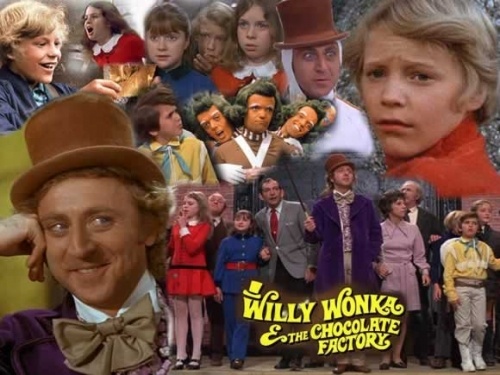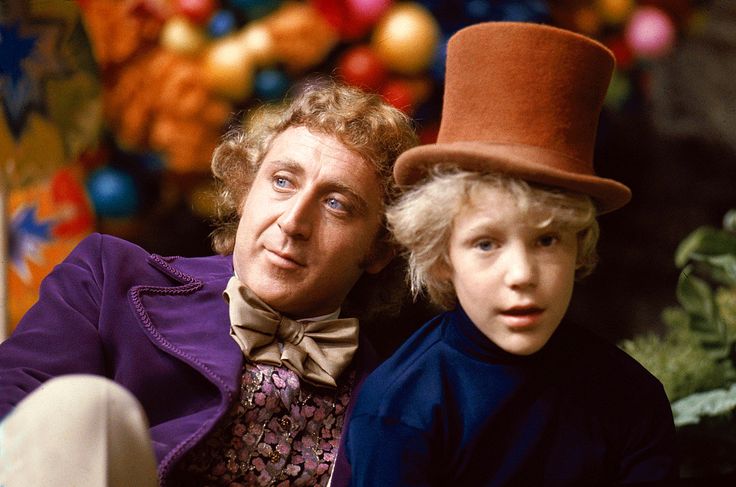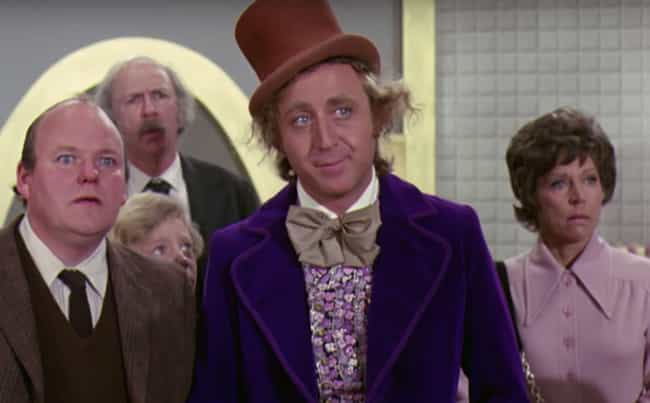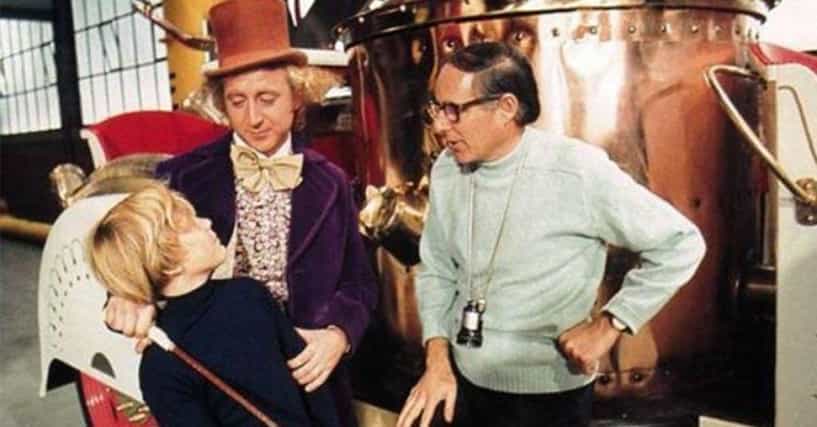Are you a fan of Willy Wonka and the Chocolate Factory? Have you ever wondered about the story behind this famous character and his chocolate factory? In this blog post, we will explore the secrets and hidden meanings behind this classic tale. From the true story behind Charlie and the Chocolate Factory to the deeper moral lessons embedded within the story, we will cover it all. Let’s dive into the world of Willy Wonka and discover the truth behind this beloved character.
Unveiling the Narrative of Willy Wonka – How the Chocolate Factory Became a Classic Tale
Willy Wonka is a beloved character in popular culture, known as the eccentric owner of the world’s most famous chocolate factory. However, what many people do not know is that there is a whole story behind this character that goes beyond his factory. The 2005 musical fantasy film, Charlie and the Chocolate Factory, directed by Tim Burton and written by John August, sheds some light on the story of Willy Wonka before he became the owner of the chocolate factory.
The film portrays Willy Wonka as a young man on an adventure to discover new flavors for his chocolate creations. Along the way, he encounters various obstacles and characters that shape his personality and eccentric behavior. Johnny Depp’s portrayal of Wonka in the film showcases the character’s quirky and eccentric personality, making him a memorable and lovable character.
The story of Willy Wonka is not only about his journey to become the owner of the chocolate factory, but also about his inner transformation and growth. Through his encounters with various characters, he learns important life lessons and discovers the true meaning of happiness. This makes the character of Willy Wonka relatable and inspiring to audiences of all ages.
In conclusion, the story of Willy Wonka is a fascinating and inspiring one that goes beyond his ownership of the chocolate factory. The 2005 film, Charlie and the Chocolate Factory, gives us a glimpse into the character’s past and sheds some light on his eccentric behavior. Through his adventures and encounters with various characters, Willy Wonka learns important life lessons and transforms into the beloved character we know and love today.
🍿 Must Read Is Greatest Showman a true story?
The Truth Uncovered: The Real Narrative of Charlie and the Chocolate Factory
The beloved classic, Charlie and the Chocolate Factory, has a fascinating origin story that many may not know about. The story was actually inspired by author Roald Dahl’s experiences with chocolate companies during his childhood days at Repton School in Derbyshire. At the time, Cadbury would send test packages to schoolchildren in exchange for their opinions on the new products. It was during this time that Dahl’s love for chocolate and his imagination began to take shape.
The idea for the story itself came to Dahl years later, as he was struggling to come up with a new book idea. He drew upon his memories of the chocolate tests and combined them with his love for fantastical stories to create the magical world of Willy Wonka’s chocolate factory.
While the story has become a beloved classic, it’s interesting to note that it was initially inspired by Dahl’s childhood experiences and his love for chocolate. This unique origin story adds an extra layer of charm and nostalgia to the beloved tale.
Decoding the Hidden Significance of Willy Wonka’s Character.
The beloved character of Willy Wonka has been the subject of many fan theories over the years, and one particularly disturbing theory suggests that Wonka is actually a child serial killer. This theory centers around the idea that Wonka chooses his victims for the tour of his chocolate factory, intentionally tempting them with their weaknesses in order to lead them to their deaths. While this theory is certainly a dark interpretation of the character, it speaks to the enduring fascination that audiences have with the enigmatic and solitary Wonka. However, it is important to note that this theory is purely speculative and has never been confirmed or endorsed by the creators of the story. Despite the unsettling nature of this theory, it does raise interesting questions about the deeper meanings and hidden messages in the story of Willy Wonka and his chocolate factory.

Unpacking the Symbolism of the Oompa Loompas: What Do They Really Stand For?
The Oompa Loompas are an essential element of the Charlie and the Chocolate Factory story. They play a significant role in the moral lessons the book aims to teach. In the story, the Oompa Loompas represent the voice of reason and morality, serving as a warning to the children and the society to correct their ways. The Oompa Loompas are miniature beings who live in Loompaland and are rescued by Willy Wonka from their dangerous living conditions.
As the children tour the factory, they are greeted and accompanied by the Oompa Loompas, who are responsible for singing catchy songs about the cardinal flaws of each child. The Oompa Loompas are used as a metaphor for the voice of reason, and their songs serve as a cautionary tale for the children, warning them of the consequences of their actions. For instance, Augustus Gloop’s gluttonous behavior is criticized by the Oompa Loompa song, which warns against the dangers of overindulging in food.
The representation of the Oompa Loompas in Charlie and the Chocolate Factory is profound, as they represent the importance of self-reflection and the need to change one’s ways. By using the Oompa Loompas as a device to deliver moral lessons, Roald Dahl highlights the importance of being aware of one’s actions and their consequences. Additionally, the Oompa Loompas add to the fantastical world created by Willy Wonka, adding an element of mystery and intrigue to the story.
In conclusion, the Oompa Loompas in Charlie and the Chocolate Factory represent the voice of reason and morality, serving as a warning to the children and society to correct their ways. The Oompa Loompas’ songs expose the cardinal flaws of the children, and their representation in the story highlights the importance of self-reflection and the need to change for the better. The Oompa Loompas add to the fantastical world created by Willy Wonka, making the story more intriguing and captivating.
>> Related – Is Heimlich in Toy Story 2?
Exploring the Dark Undertones of Charlie and the Chocolate Factory.
When we think of Charlie and the Chocolate Factory, we may imagine a whimsical place filled with sweets and wonder. However, beneath the surface of this seemingly innocent story lies a darker side. Roald Dahl, the author of the book, always intended for his story to have a slightly ominous tone. In fact, it can be argued that Charlie and the Chocolate Factory is a horror story.
The book is filled with scenes that are unsettling, from the grotesque descriptions of the spoiled children to the ominous warnings given by Willy Wonka. The story also touches on themes of greed, punishment, and death, making it a thought-provoking read for both children and adults.
Despite the darker elements of the book, it is important to note that this does not necessarily make it a bad thing. In fact, many readers are drawn to the book precisely because of its slightly sinister undertones. The contrast between the sugary-sweet exterior and the darker interior gives the story a depth that is often missing from children’s literature.
In conclusion, while Charlie and the Chocolate Factory may not be your typical children’s book, it is precisely this uniqueness that has made it a beloved classic. The dark elements of the story add a layer of complexity that elevates it beyond a simple tale of candy and adventure.
Exploring the Lesson on Morals in Charlie and the Chocolate Factory.
The moral lesson of Charlie and the Chocolate Factory book is an interesting topic to discuss. The book uses punishment as a tool to emphasize the moral code. It portrays good children as those who are obedient and respectful, while bad children are depicted as the opposite. Although the book does not entirely blame the bad children for their behavior, it suggests that their parents are largely responsible for their actions.
The story teaches us that bad behavior must be corrected through whatever means necessary, even if it means punishment. Charlie and the Chocolate Factory is a story that highlights the importance of discipline and following rules. The book’s author, Roald Dahl, believed that children should be held accountable for their actions, and this is clearly reflected in the book’s storyline.
The book’s message is not just limited to children; it is a lesson that people of all ages can learn from. The story reminds us that our actions have consequences, and we must be responsible for our behavior. It teaches us that we should strive to be good, respectful and obey the rules, and if we don’t, there will be consequences.
In conclusion, the moral lesson of Charlie and the Chocolate Factory is that bad behavior must be corrected through whatever means necessary, even if it means punishment. The book emphasizes the importance of discipline and following rules, and it reminds us that our actions have consequences. The story teaches us that we should strive to be good, respectful and obey the rules, and if we don’t, there will be consequences. It is a valuable lesson that applies to people of all ages.
The Meaning Behind the Golden Ticket
In Roald Dahl’s Charlie and the Chocolate Factory, the Golden Ticket represents a rare opportunity for wealth and privilege, hidden away in the chocolate bars produced by Mr. Wonka’s factory. The ticket is a physical representation of the power dynamics that govern Charlie’s world, where money and status dictate who has access to opportunities and who does not. It is a symbol of hope for the impoverished Charlie, who dreams of escaping his difficult circumstances and experiencing the wonders of the world beyond his small town.
The Golden Ticket also serves as a plot device, driving the narrative forward as the five children who find the tickets are thrust into the spotlight and given a chance to tour Mr. Wonka’s factory. The ticket creates excitement and anticipation, as people around the world search for the coveted prize. It also serves as a commentary on the consumerist culture of the time, where people were willing to go to extreme lengths to obtain a product that promised wealth and success.
Overall, the Golden Ticket in Charlie and the Chocolate Factory is a powerful symbol that represents the inequalities and aspirations of society, as well as the potential for change and transformation through unexpected opportunities.
The Controversy Surrounding Wonka’s Use of Oompa-Loompas.
The portrayal of the Oompa-Loompas in the first edition of Charlie and the Chocolate Factory has been a subject of controversy over the years. In the original version of the book, they were described as black pygmies from Africa, who were brought to work in Wonka’s factory after being saved from “terrible fates” in their homeland. The depiction of these characters as exotic and subservient has been criticized as racist and offensive.
Furthermore, the Oompa-Loompas were depicted as being under Wonka’s control, with no agency or free will of their own. They were forced to work in the factory, with no means of escape or ability to leave. This portrayal of the Oompa-Loompas as slaves has also been widely criticized.
However, in later editions of the book, the Oompa-Loompas were depicted differently. They were no longer black pygmies from Africa, but rather orange-skinned beings from Loompaland, who were rescued by Wonka from their dangerous environment. They were not portrayed as being enslaved, but rather as being happy workers who had chosen to work in Wonka’s factory for a better life.
In conclusion, the original portrayal of the Oompa-Loompas in the first edition of Charlie and the Chocolate Factory has been criticized for its racist and offensive depiction of these characters as slaves. However, later editions of the book have portrayed the Oompa-Loompas differently, as happy workers who chose to work in Wonka’s factory. It is important to acknowledge and understand the problematic aspects of the original portrayal while also recognizing the changes made in later editions.
More to discover
the story behind Willy Wonka and Charlie and the Chocolate Factory is a fascinating one that has captivated readers and viewers for decades. The secret meaning behind Willy Wonka and the Oompa Loompas adds depth to the story, while the question of whether the book is dark or not is still up for debate. The moral lesson of the book is to be kind and honest, while the golden ticket symbolizes the power of hope and determination. Finally, the issue of whether Wonka enslaved the Oompa Loompas is a controversial topic that adds complexity to the story. Overall, Charlie and the Chocolate Factory is a timeless classic that will continue to inspire and entertain generations to come.


